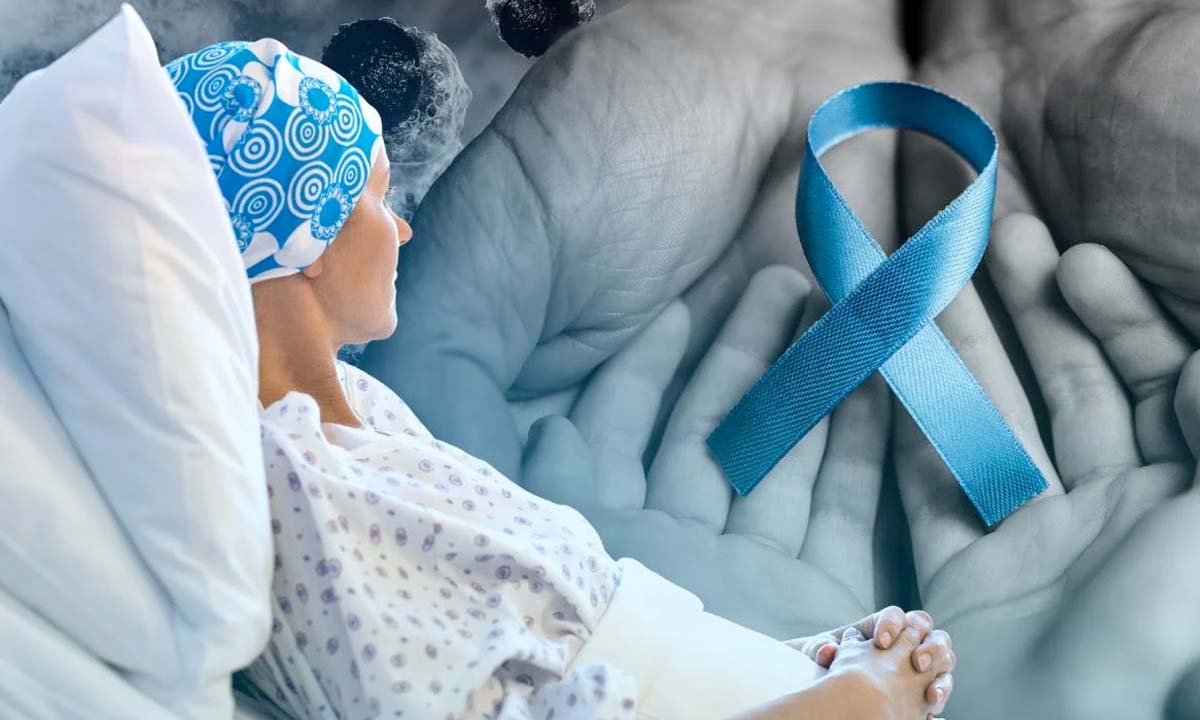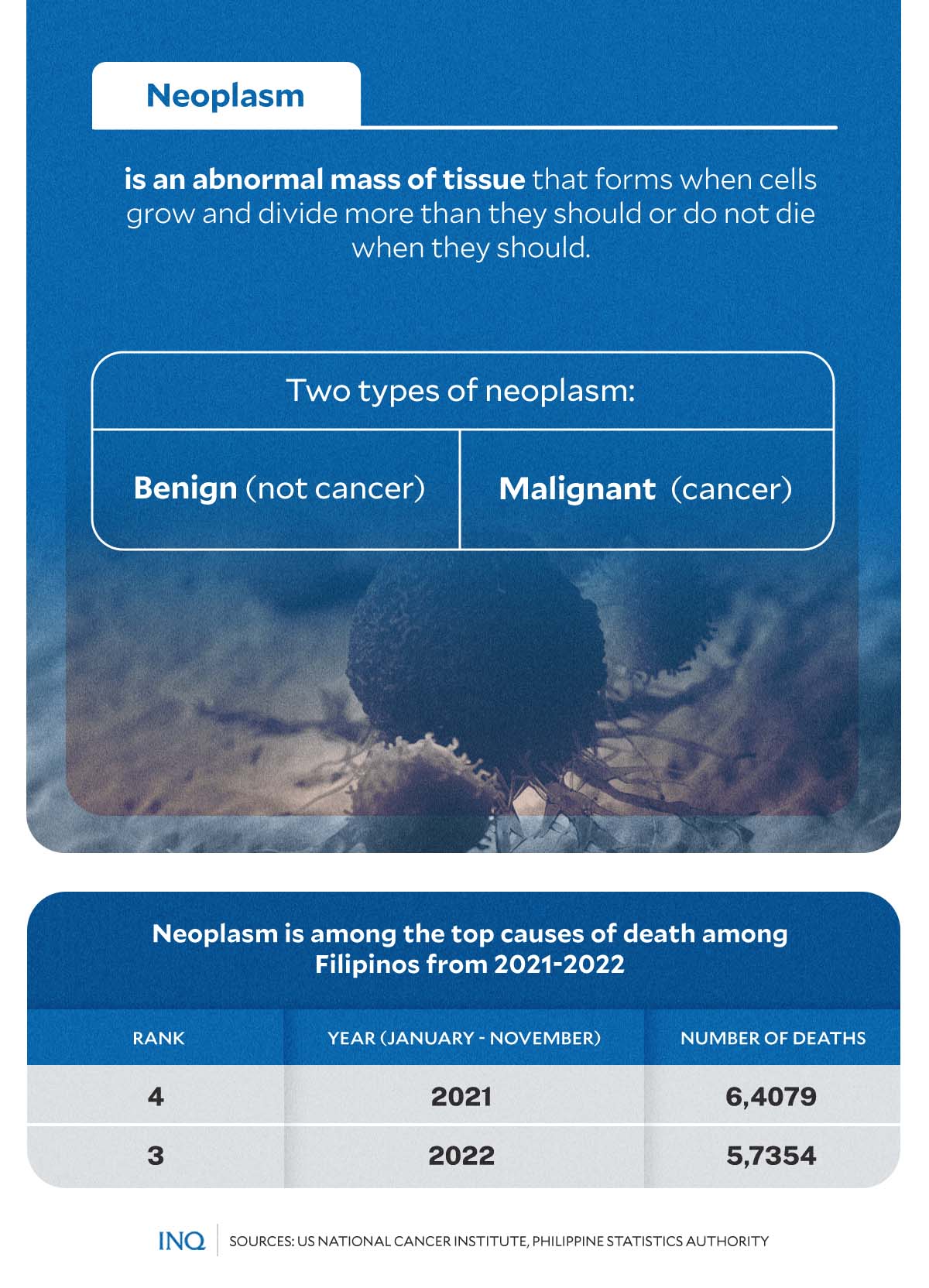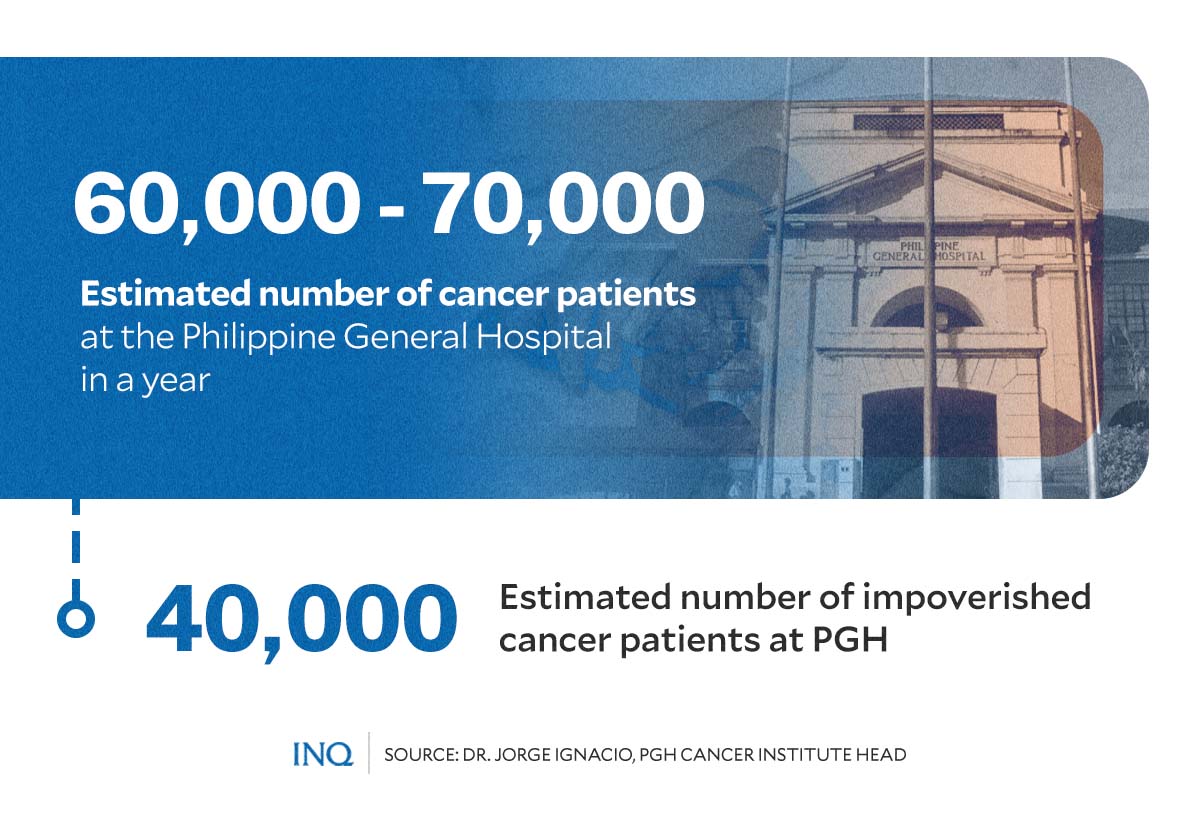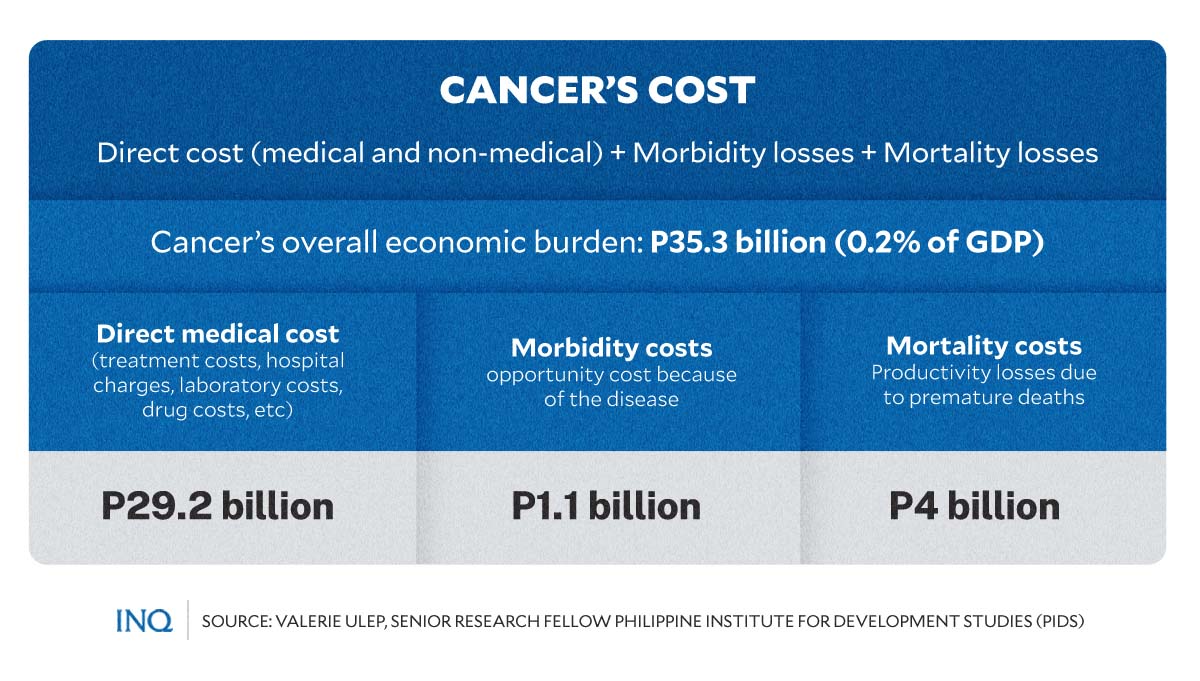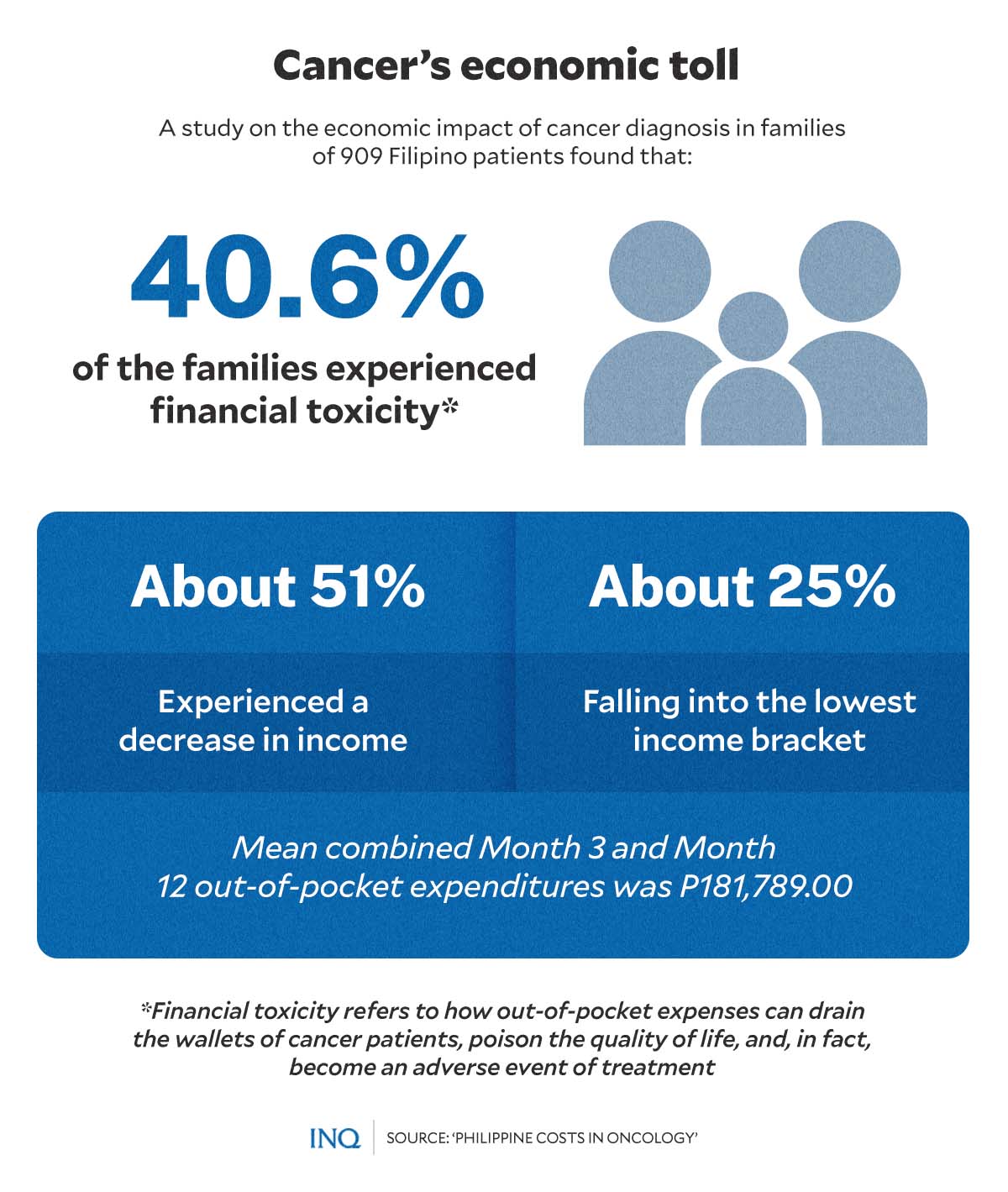Access to new cancer medicines remains limited for poor patients—experts
MANILA, Philippines—Despite global advances and innovations in the medical field, which made cancer treatable and preventable, accessibility remains a real issue—especially among indigent cancer patients in the Philippines.
As several treatments for cancer become more available to millions of patients worldwide and with advances and innovations in the medical field, hopes are rising that a cure for cancer has finally come.
“We can beat cancer now. We can save lives. And we are trying our best to make treatment accessible nationwide, especially to those who cannot afford the treatment,” Dr. Marvin Mendoza, head of the oncology section at the National Kidney and Transplant Institute (NKTI), previously said.
In the past years, various types of treatments for breast cancer have been introduced and made accessible for patients in the country. These include a type of breast cancer treatment called targeted therapy—which uses targeted drugs or medicines that work differently than standard chemotherapy drugs.
READ: More needs to be done: Better breast cancer treatment, care pushed
Another cancer treatment available in the country is immunotherapy, which, according to the Philippine Society of Medical Oncology, helps boost the body’s natural defense mechanism to fight cancer.
In April last year, the country’s Food and Drug Administration (FDA) approved olaparib, an oral maintenance drug targeting cancer-causing gene mutations.
Dubbed a “revolutionary drug,” olaparib prevents the growth of cancer cells among patients with advanced ovarian, breast, prostate, and pancreatic cancer.
However, Filipino cancer patients’ access to these innovative cancer treatments remained limited.
A roadblock in cancer treatment
Last week, Philippine Society of Medical Oncology (PSMD) president Dr. Rosario Pitargue called on the government to prioritize and fast-track the inclusion of new cancer drugs in the Philippine National Drug Formulary (PNDF).
“These are the drugs that we really need to be able to help our patients,” she said.
READ: Include more innovative cancer meds in National Formulary, gov’t urged
Pitargue explained that the process for the inclusion of these medicines would need approval from the Health Technology Assessment Council and would take one to three years.
According to Dr. Kenneth Samala, a medical oncology fellow at the University of the Philippines-Philippine General Hospital (UP-PGH), new cancer medicines should be included in the PNDF first before the Department of Health (DOH) can procure them for the government’s cancer control program.
At a media forum earlier this month, Samala said that they have already applied various cancer medicines to be added to the formulary “but nothing happened.”
“[T]his is one roadblock that we are experiencing. We are hoping that the process of formulary inclusion will be fast-tracked,” he said.
In need of assistance
Including new cancer drugs in the formulary will help indigent patients enrolled in the government’s cancer control program gain easy access to the available innovative medicines, Pitargue explained.
Statistics revealed that at least 7 in 10 cancer patients in the country “drop out of treatment regimen” due to lack of funds
In the Philippines, the cost of cancer treatment can range from ₱120,000 to as much as over ₱1 million. The estimated price of chemotherapy cost per session, depending on the cancer type, starts at ₱20,000 up to over ₱120,000.
READ: PH cancer patients lack access to preventive screening, costly treatment
At the UP-PGH, which serves around 60,000 to 70,000 cancer patients in a year, Dr. Jorge Ignacio, oncologist and chair of the UP-PGH Cancer Institute, estimated that at least 40,000 cancer patients are poor.
“We still rely on chemotherapy because this is, in a way, affordable,” Ignacio said, stressing that indigent patients would not be able to avail themselves of the new cancer medicines that are more expensive.
A study published in 2018 in Acta Medica Philippina—a peer-reviewed general medical and health science journal published by the University of the Philippines (UP)—highlighted the economic impact of cancer diagnosis in families.
The study, which analyzed 909 cancer patients in the Philippines, found that 40.6 percent of cancer patients’ families experienced financial toxicity—or financial problems—due to the high cost of medical care.
The researchers also found that the mean combined out-of-pocket expenses of respondents at 3 and 12 months after diagnosis amounted to ₱181,789.00.
READ: ‘Financial toxicity’ hurting PH cancer patients
Recent data from the Philippine Statistics Authority (PSA) showed that neoplasm—an abnormal mass of tissue that can either be benign (not cancerous) or malignant (cancerous)—is the third leading cause of death in the country.
From January to November 2022, the country recorded a total of 5,7354 deaths due to neoplasm.
TSB
RELATED STORIES:
Bigger cancer budget equals better treatment, fewer deaths in PH
Long lines, lengthy treatment wear out PH cancer patients
More funding, assistance bring cancer patients closer to recovery
Fighting cancer in PH: Hope raised for P10B additional funds
